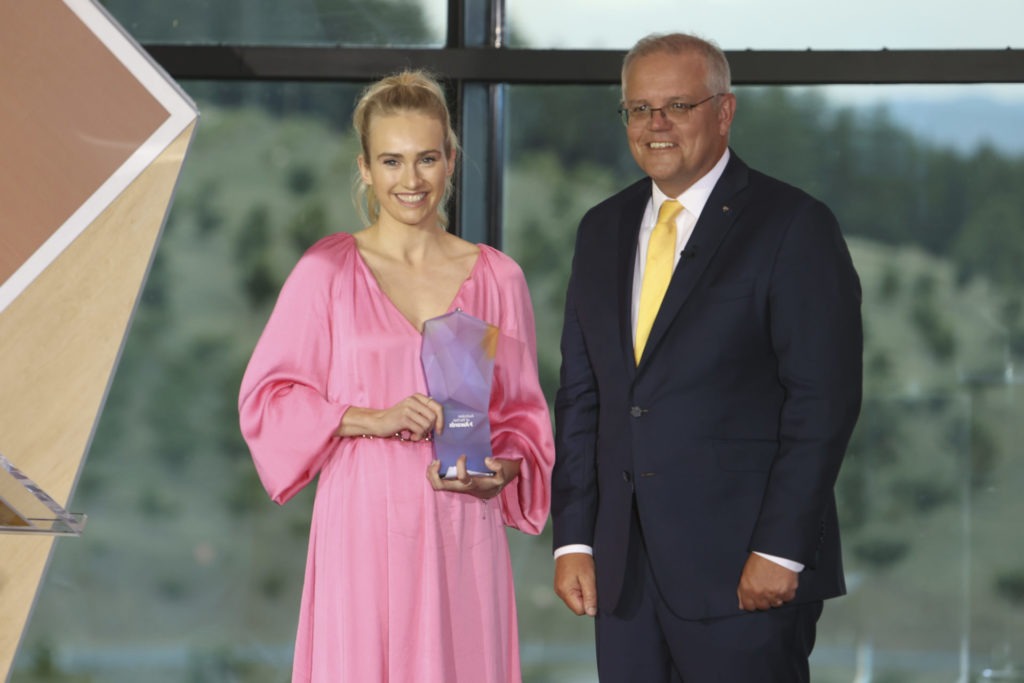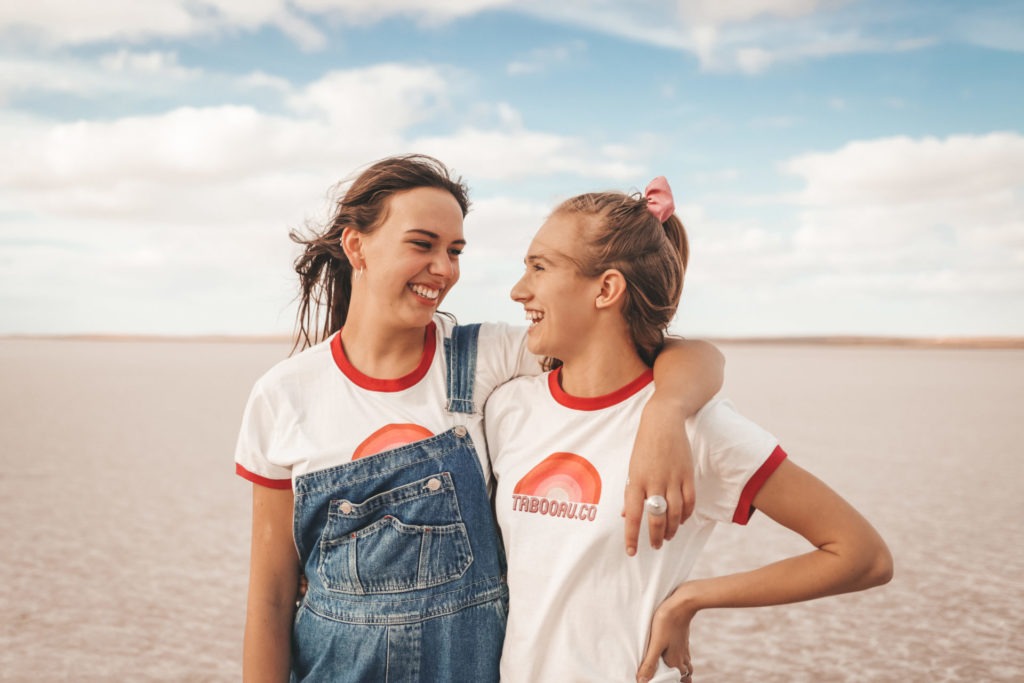They met in Year 7 and started the social enterprise TABOO before finishing high school. Now, Eloise Hall and Isobel Marshall are pursuing an audacious mission to support women and girls globally.
Their mission is to help eradicate period poverty for the 1 in 10 girls worldwide who can’t afford period products, by selling 100% organic cotton period products with 100% of net profits going to the cause. It’s a mission that requires compassion, and one they work constantly to support their customers in feeling empowered to help achieve.
And they’ve been hugely successful so far. Through a “pad it forward program” they have provided thousands of boxes of pads to girls in Australia who need it. They have supported women in crisis centres, community service providers across remote and Indigenous communities, schools and youth services.
Meanwhile, Marshall is a fourth-year medical student, and Hall has been studying business and international relations while working in hospitality.
Their plates were already full, but things got even busier when Marshall was named Young Australian of the Year. Struggling to balance TABOO with full-time study and other work, they both made the decision to take a step back a focus more on their roles at TABOO.

Speaking to Shivani Gopal for the second episode of our six-part Moments That Make Us special, thanks to the support of Stella Insurance, the pair say much of what has defined their leadership so far stems from some of the moments of their friendship.

They bonded particularly over the fundraising opportunities they participated in during school, and then later were both able to attend a leadership conference at a university where they were introduced to the social enterprise model.
As consumers of pads and tampons every month, they saw a market they already had an experience with, and could use to apply the social enterprise model to and ultimately help raise funds to provide the products to those who can’t afford them.
On friendship and business, Isobel notes some of the lessons they’ve learned.
“Even without the intensities and I guess the concentrated experiences of starting a business, this timeframe of life, 18 to now, we’re 23, is a huge learning curve for anyone. We were able to do that alongside each other. I guess the challenge is that we were not only doing it alongside each other, but the changes that we were going through personally affected each other because we were so intertwined into each other’s lives,” says Marshall
“There’s a lot of learnings around open and honest communication, and having to be having to know when to talk as friends or talk as business partners, I guess delineating that, but then being empathetic to what the other person needs at that time, but also what the business needs. There was a lot of self-learning and learning about each other.”
At the heart of it all, has been the mission.
“If we didn’t have a mission-based business, we would have probably given up, maybe on both our relationship and the business,” Hall says.
“The saving grace is that you can’t give up when it’s too hard because ultimately, you both care about the mission and the reasons you’re doing business more than the difficulties in front of you. We didn’t really have a way out. That’s not in a way that we’re bound to that forever, but not only is this business our baby, but it’s a baby that we really want to see thrive because we know that it’s going to have such a huge effect on so many other people’s lives.”
On how they started a business so young, Hall says being openly naive has helped, especially in just asking for the help that they needed but then also balancing that with trusting their own instincts.
“I think early on, we both also realized that adults have no idea what they’re doing. Now we’re adults, we can say that. You do learn along the motions… We can’t know all. We can’t be perfect. If you lead with vulnerability, and if you lead with humility and the human nature of making mistakes, then you attract the same kind of people.
“When you really understand your capacity to learn, I think you can really trust that you’re a good leader and you’re good at your job, as well, because you’re not pretending. You’re actually really authentically leaning into your gaps and strengths, as well.”
Marshall says knowing what she knows now, five years into starting the business, she would strategically not tell her younger self anything.
“The beauty of where we were at the time and the inexperience was that we were open to being vulnerable and we were seeking, very consciously, every different perspective. Whether we agreed with that or not, it was just absorbing information. If anything, probably the more pertinent question for us at that time would be, what would you want to hear from your future self? What’s the future of Taboo look like? Is this issue that’s right in front of us right now a big deal?”
They called the business Taboo to note the shame and stigma so many women feel all around the world, to the point where their work and education can be impacted.
“We really did want to reclaim that, as you said especially knowing that stigma itself is one of the largest fuels of period poverty, in general,” says Eloise.
“The fact that it’s not an open discussion means that we have a lot more barriers in attaining a lot of the necessities we need to have period poverty removed. We’re reclaiming that like a lot of minority groups have done in history. They’re reclaiming words that have typically been used as weapons against them, and we’re using it as, literally, a brand name.”
“We have to compress a lot of learning into a few years of how to grow with and aside someone, and while growing something that you’re both heavily invested in. It’s not an easy feat, but to learn the lessons we have so quickly, it’s very valuable,” says Hall.
Check out Shivani’s first interview in the Moments that Make Us series, with Kemi Nekvapil here.
You can listen to these eps of Moments That Make Us series made possible thanks to the support of Stella Insurance below, or on Spotify or Apple Podcasts.
Stella is a purpose-driven insurance brand that is mission-led, authentically different and passionately pro-women. We’ve created a more intuitive experience and offer car insurance that’s been designed with women in mind. This means premium benefits, optional extras, and rewards for being a safer driver. Get a quote and switch to Stella.


